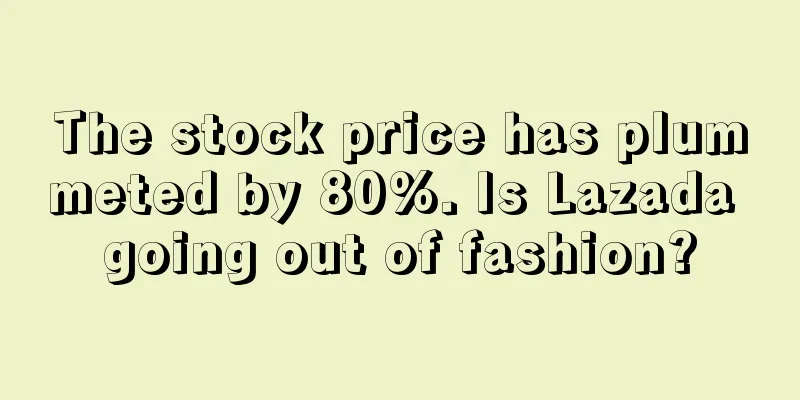With 4,000 to 5,000 orders a day, Temu sellers can no longer make money

|
Recently, a new round of price reduction has started on Temu. Sellers reported that the platform implements the lowest price mode, and will prompt price reduction when it detects that the product price is high, and begin to require further price reductions on the basis of approved prices. The account will pop up more than a dozen price reduction notifications every night, and not agreeing will affect traffic and order volume.
Temu also copied Pinduoduo's "refund only, no return" clause. Some users shared on social media that when they refunded, the platform directly told them "no need to return the goods." Sellers are worried that foreign "wool parties" may flock to it.
A new round of price cuts begins, and a group of sellers withdraw
For sellers who have settled in Temu earlier, getting orders is no longer a problem, but price pressure is increasing.
A seller has been working on the best seller platform for three months and now has 4,000-5,000 orders a day, with a profit of more than 10,000 yuan a day, which is hard to imagine on other platforms. The seller invested more than 2 million yuan in this, but now he is backing out and says he can no longer do it because of the platform's lowest price model. "If you don't lower the price, you will be asked to change the price. The software automatically detects and prompts you to lower the price if the price is too high."
Some merchants said that if they were willing to make only 50 cents in gross profit per item, it would be easy to have thousands of orders a day, but the low profit made them give up on many products.
"Temu has recently started to require sellers to reduce prices after the price has been approved. A dozen price reduction confirmation notifications will pop up on each of our accounts around 8 o'clock every night. If you disagree, there will be a red font reminder that it will affect subsequent traffic and order volume, and all consequences will be borne by the seller." @外贸宝妈阿皮 said. She mentioned that the cost price of a pair of shorts she was selling was about 12.5 yuan, and the listing price was 12 yuan. She sold more than 200 pieces with a 100% favorable review rate, but was asked to reduce the price to 8.8 yuan. Since there was not much stock left, she agreed. "I don't know how new sellers will play now? Although new models are still profitable, I don't know if the platform will let sellers reduce prices at 8 o'clock tonight or 8 o'clock tomorrow night?"
The supply price on the platform is getting lower and lower. A seller heard that his friend made over 100,000 yuan a month from Temu, so he quickly found a factory to cooperate with, but got stuck at the quotation stage. "It makes me doubt my life. My factory's price is already very cheap, and they cut it in half. The average customer price of dozens of yuan is directly cut to less than my cost."
The continuous demands for price reductions have infinitely squeezed the profits of trading merchants.
A seller was told that a popular product in his store must be reduced to a minimum price of 1688, otherwise it will be removed from the shelves. This product is indeed purchased through 1688, and the merchant still has 2,000 sets of inventory in the warehouse, but he can only accept the buyer's price and lose the shipping costs on both ends, hoping to clear the inventory at a loss.
"To be honest, I feel really disappointed at this moment. I suddenly feel that the 400,000 yuan and 4 people we invested in this platform over the past few months are worthless," said the seller. He questioned why the platform approved the price in the first place if it needed the price listed on 1688. "To put it bluntly, they let a large number of traders and individual sellers work hard to test the products, and then they will get rid of them once the best-selling products come out of the test."
Shortly after Temu went online, there was an analysis in the industry: what the platform needs is extremely low prices, and the corresponding merchant group is factories or integrated industrial and trade merchants. Traders have limited advantages in the supply chain, but these cross-border sellers are experienced and have a keen sense of hot products, and can pave the way for platform testing in the early stages.
It is also because of this gap that many cross-border sellers said that this platform is not suitable for them after trying it out. "I am ready to withdraw from Temu and leave it to others to make money." said a cross-border seller.
For those who are used to the third-party platform model, Temu's input products are relatively low, and putting efforts into other platforms will soon overshadow this channel. The more inventory you have, the more passive you are. Sellers do not care about the volume of orders but profits. For them, Temu is more positioned as a clearance channel rather than a major sales platform.
"Refund only, no return", overseas users get the bargain
Low prices are a tight ring around the sellers’ heads, but they are also the platform’s trump card for attracting customers, and can even allow it to snatch customers from Amazon.
A French user lamented: "Temu's algorithm and marketing are amazing. Everything you need is ranked high when you search for it, and the prices are more than half lower than the normal price. It is said that they are willing to lose $500 a year to retain a regular customer. I just placed a few orders on it (because they will send you several large coupons for each order), including a stainless steel coffee latte art pot and a children's coloring book. I plan to stop my Amazon Prime membership if the quality of the products I receive is acceptable."
After attracting customers to place orders, Temu will retain them with high-quality services, one of which is " refunds only, no returns ."
A Chinese person in the UK spent £7.64 to buy a pair of shoes from Temu. He planned to return them because they were too tight. The platform told him that he could get a refund without returning the shoes. "You don't have to return these items. Please keep, donate or recycle them." The buyer said bluntly: "After so many years of online shopping, this is the first time I have encountered a refund without returning the shoes. I can't do it anymore."
(Photo source @ Beese )
Some cross-border sellers pointed out that although domestic and foreign platforms will allow customers to refund but not return the goods, there should be no such direct and explicit reminder ... "It is estimated that those professional fraudsters with thousands of buyer numbers will soon teach them a lesson. If Temu suddenly has a big order, take it easy."
The platform uses "only refunds but no returns" to please consumers, which is a major pain point for sellers. In the domestic e-commerce market, Pinduoduo's "only refunds but no returns" option has caused many merchants to be angry, and some regions and user groups have abused the service, and even publicly taught how to buy free goods. This situation is likely to happen overseas.
At present, a large number of Temu sellers are still facing the problem of difficulty in replenishing stocks. They can only rely on rushing to ship goods. Sellers say that they are clicking their mouses until smoke comes out. The investment manager recommends trying at 0:00, 11:00, 11:30, and 13:00. The probability of grabbing at other times is low. In addition, hot-selling products will be grabbed separately and the quota will be allocated first.
Cross-border flattening, sellers should be wary of the full hosting model
As platforms such as Temu gradually gather full hosting, the cross-border e-commerce chain is being simplified and flattened.
Sellers believe that the emergence of managed platforms, which eliminate the middleman and directly connect with factories for supply, should be cautious of sellers who adopt the purchase-sales model. "In the past two years, in addition to watching the development trend of this type of platform, we should also start thinking about the transformation and upgrading of the business model and prepare for possible changes in the future."
On hosting platforms, many merchants can only compete with the supply chain and are squeezed to the lowest cost to compete on price. However, both trading and factory sellers have difficulties. "According to Temu's payment collection speed and operating philosophy, the capital cost of being a middleman is also very high, and there is also the problem of labor efficiency; and factories need hot products, and many factories are unwilling to do it without hot products." A seller analyzed.
Temu became successful thanks to its low-price model and rich SKUs.
Recently, Modern Retail in the United States cooperated with Attest to conduct a survey of 1,000 American consumers to find out the most popular shopping platforms in the United States besides Amazon . The results showed that in the past 6 months, in addition to Amazon, the most used shopping platforms by respondents were eBay (32%), SHEIN (21%) and Temu (17%).
On social media such as TikTok, many people are satisfied with shopping on Temu. From gadgets and household items to clothes and shoes, Temu is becoming the latest favorite of TikTok users. Obviously, cross-border e-commerce platforms are reshuffling. Temu |
Recommend
What is KuaiTu Logistics? KuaiTu Logistics Review, Features
KuaiTu Logistics is China's leading intellige...
Walmart's online business will continue to undermine Amazon's dominance
While it’s unlikely that brick-and-mortar retaile...
Temu, America's New Age Dollar Store
Since its launch in September last year , Temu ha...
What is Changyin Wallet (Changan Yinke)? Changyin Wallet (Changan Yinke) Review, Features
<span data-docs-delta="[[20,{"gallery"...
Net sales of $874 million, record sales for Mattel in the U.S.
Relevant data shows that in the first quarter of ...
What is Tianchuang Supply Chain? Tianchuang Supply Chain Review, Features
Tianchuang Supply Chain focuses on international ...
What is Tianchuang Yida Supply Chain? Tianchuang Yida Supply Chain Review, Features
Shenzhen Tianchuang YiDa Supply Chain Co., Ltd. re...
What is Guangzhou Zhongtian Cross-border Supply Chain Co., Ltd.? Guangzhou Zhongtian Cross-border Supply Chain Co., Ltd. Review, Features
Guangzhou Zhongtian Cross-border Supply Chain Co.,...
What is ekrdesigns? ekrdesigns Review, Features
The ekrdesigns brand aims to create accessories th...
Breaking the US$1 million barrier in 10 days! Brand merchants are accelerating sales on AliExpress
In addition to traditional small and light items,...
What is MiKe Cross-border Operation? MiKe Cross-border Operation Review, Features
Hangzhou MiKe Technology Co., Ltd. is a new cross-...
What is Yinshengbao? Yinshengbao Review, Features
<span data-docs-delta="[[20,{"gallery"...
Search volume increased by 1374%! In the heavy snow, these summer products are booming
A few days ago, the "Chinese antique" s...
Big news! Amazon has relaxed its shipping restrictions, and the IPI score has dropped to 400!
Amazon US announced that it has increased the shi...
Home furnishing products have great potential in overseas markets. eBay launches "Large and Heavy Goods Premium Plan" to help home furnishing products accelerate their overseas expansion
Today, eBay made its debut at the first China (Ni...









